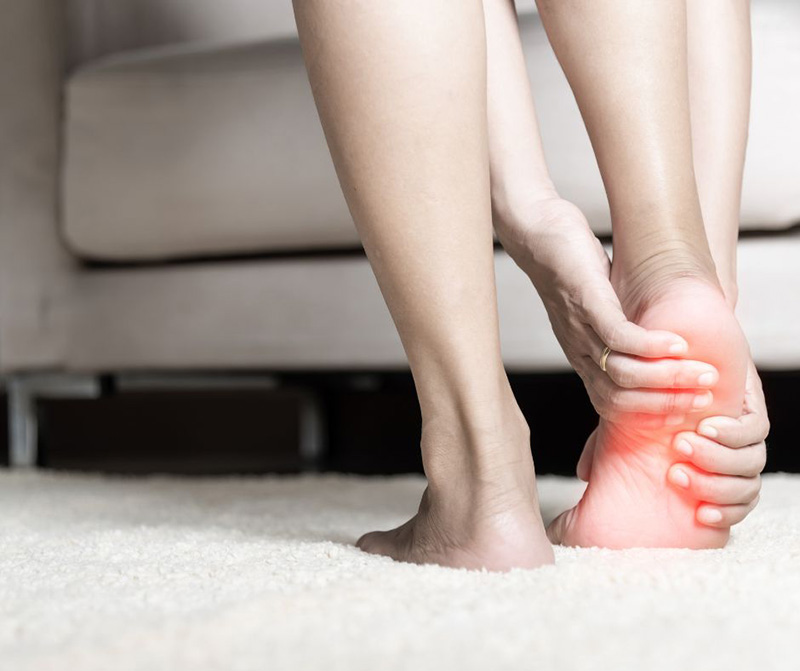Do I Have Plantar Fasciitis?

If you’ve ever had foot pain and googled your symptoms, you’ve probably come across the term “Plantar Fasciitis”, but what does this diagnosis mean and how does it affect your ability to stay active?
Plantar fasciitis is inflammation of the plantar fascia – a band of tissue that spans from your toes to your heel and helps support the structure of your foot. Due to its location and role in the body, this fascia is vulnerable to high stress and/or repetitive activities. If the fascia becomes irritated it will become inflamed and can cause pain in the bottom of the foot, most commonly at the heel. The pain will be present when performing weight bearing activities, such as standing, walking, and running. Most people will identify their pain as being worse when they take their first steps after getting out of bed in the morning or after prolonged periods of sitting or laying down. However, the pain will often start to ease as the person continues to walk. There are multiple factors that may increase the risk of experiencing plantar fasciitis, including: performing high impact and/or repetitive activities frequently, abnormal foot mechanics pertaining to the structure of the foot/ankle itself or how the foot/ankle moves when walking, working a job that requires long periods of standing and walking, tight calf muscles, ages between 40-60 years old, and being overweight.
Due to the high level of pain that plantar fasciitis can cause during simple activities such as standing and walking, people who develop this condition will often begin to avoid activities and hobbies they enjoy. People may also start to develop abnormal walking patterns to help avoid the pain when performing activities that they need to do. So, if you think you or someone you may know are experiencing symptoms that sound like plantar fasciitis, give your friends at Tandem Physical Therapy a call.
Treatment at Tandem Physical Therapy can be a great, conservative option to address the pain without multiple appointments with different providers, without needles or surgery, and without reliance on pain medication. Our therapists can provide relief from the pain symptoms you are experiencing, identify and address contributing factors that led to the inflammation in the first place, and help you return to your favorite activities pain free and with good form. In your initial evaluation, we will take a deep look into the health and function of your entire involved leg to identify what went wrong and give you a plan for how to fix it. Once your physical therapist has performed their exam, they will be able to determine if you have plantar fasciitis and will benefit from treatment.
What Happens In A Treatment Session?
Treatment in the office will include hands-on soft tissue massage and gentle stretching to the plantar fascia and calf muscles. These hands-on treatments will address the injured soft tissue and scar tissue, enhance blood flow to the damaged area, and restore normal motion and comfort of the foot. Such treatments may include dry needling, ASTYM (the use of handheld, contoured tools), or our hands directly. Additionally, your physical therapist will work with you to improve the motion in your ankle, the mechanics of your foot/ankle when walking, and the strength of the muscles that are in your feet, surrounding your ankle, and up the hip.
However, with every condition we treat here, a big key to addressing plantar fasciitis is continuing the work we do here at home. This includes making sure your shoes are supportive and not old and worn out, daily stretches for your calves and feet, and gradually easing yourself back into your favorite sports and activities.
If you’re tired of the pain in your heel wearing you out and nagging you every day, let’s connect! You may qualify for one of our free Discovery Visits, perfect for people who know they need to do something about the problem, but just aren’t 100% sure what that is just yet. To see if you qualify, give our Metairie office a call at (504) 407-3477. Or click HERE to fill out a 60-second application.
